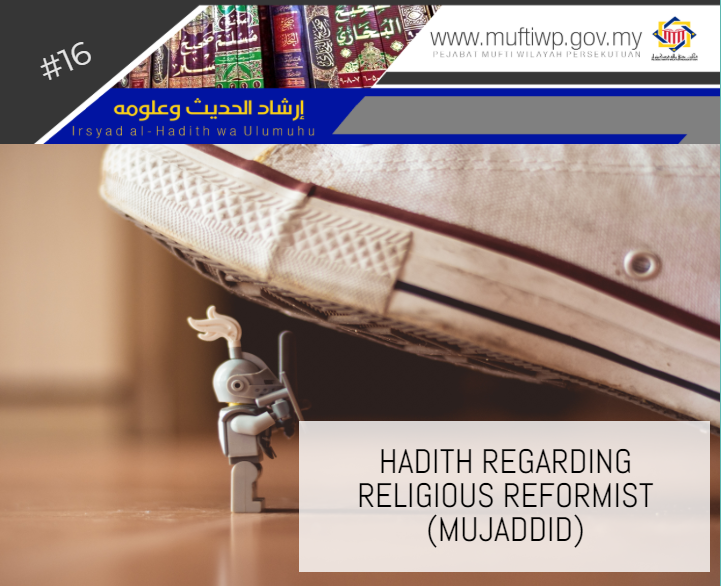Alhamdulillah, praise and thanks to Allah for the countless blessings He has blessed us all with. Blessings and salutations to the Prophet Muhammad PBUH, his wives, his family, companions and all those that follow his teachings to the day of judgement.
This hadith is very famous and often heard when people talk about transformation. It is something that even scholars wrote when deciding who is considered as mujaddid or reformist. This famous hadith is narrated by Abu Hurairah RA, where the Prophet PBUH said:
إِنَّ اللَّهَ يَبْعَثُ لِهَذِهِ الأُمَّةِ عَلَى رَأْسِ كُلِّ مِائَةِ سَنَةٍ مَنْ يُجَدِّدُ لَهَا دِينَهَا
“Indeed, Allah SWT would send in every hundred years a person who would renew this religion (from deviance),”
Narrated by Abu Dawud (3740) in Part al-Malahim, under the chapter of What was Said in the 100th Century, and al-Hakim (4:522) in al-Mustadrak. This hadith is evaluated as sahih by al-Albani (599) in his Silsilah.
The Meaning of the Hadith
From this hadith, we may understand that Allah SWT will raise someone in a community every hundred years a person who will help the community, preventing the community from straying and deviating from this religion while at the same time preserving the holiness of this religion from elements that are able to taint its purity. Hence, each Muslim who has true faith should believe in this hadith.
The meaning of al-Tajdid or reformation is restoring and re-evaluating Fiqh, iman (faith), amal (practice) and da’wah (preaching) through new and innovated ways in accordance with the current situation as long as it does not contradict with the Quran and the Hadith. For that, the meaning of tajdid is not creating new matter or religion as claimed by some individuals.
If we look back to the times of the Companions, tabi’in and generations after them, we may see that during that time, in understanding the nas (syarak evidences), the elements that are considered are celebrating and easing of matters as well as an openness in finding the compatibility with the maslahah and needs of the time.
The Meaning of “مَن” in this hadith
The scholars and intellectuals when commenting on this hadith hold the opinion that the phrase “man” (من) is “isim mausul” (اسم موصول) which brings the meaning of itlaq/absoluteness (إطلاق) whether it is an just one individual or more than one. This is because, there are people who said that only one person will be the reformist for each hundred years. The opinion which states that the phrase “man” indicates more than one person is supported by several famous scholars of hadith, among them are:
- Ibn Hajar: “It does not necessarily mean that for every hundred years only one reformist will come as there is a possibility that it will be done by a group of people.” [Fath al-Bari, 13: 295]
- Ibn Kathir: “This hadith includes everyone today who carry out the fard kifayah duty related to knowledge.” [al-Bidayah wa al-Nihayah, 9:303]
- Al-Zahabi: “I am of the opinion that the phrase ‘man’ in the hadith indicates jama’ (plural) and not mufrad (singular).” [Tarikh al-Islam, 7: 99]
Tarjih (Disposition)
We already stated that the scholars differ on stating the meaning of the phrase ‘man’ in the hadith. Therefore, we are of the opinion that ‘man’ in this hadith means more than one person as what is understood previously and now.
Lastly, may Allah SWT protect us and our family from every fitnah that befalls the Muslims. Amin.
Wallahua’lam.


